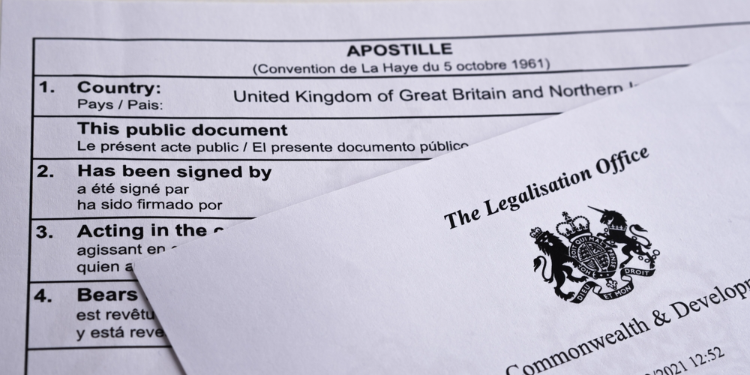What is Certified Translation?
Imagine needing your birth certificate translated for a new bank account in a foreign country. A regular translation might suffice for everyday conversations, but official institutions (like the bank in this scenario) demand more. This is where certified translations come in. They're translations completed by a qualified professional, who guarantees the accuracy and completeness of the translated document. Often, a certificate is included, signed by the translator, stating their qualifications and adherence to professional standards.
Life as an expat throws a lot of paperwork your way. From applying for visas and work permits to opening a bank account, enrolling your child in school, or getting married, many official processes require certified translations of your legal documents – birth certificates, marriage certificates, diplomas, contracts, and the like. Having these translations readily available saves you time, stress, and potential delays in settling into your new home.
How certified translations work around the world
While the core concept remains the same, the specifics of certified translations can vary by country. Let's explore how certified translations work in some popular expat destinations:
Certified translations in the United States
In the United States, there's no central governing body for certified translations. Generally, any qualified translator can provide a certified translation. However, some institutions may have specific requirements, so it's best to confirm their requirements. A certified translation in the United States means that the translator has provided a signed statement attesting to the accuracy and completeness of the translation. This statement is typically attached to the translated document.
On another note, If you are seeking certified translations for immigration/visa purposes, the United States Citizenship and Immigration Services (USCIS) expects that the Translator must not be a relative of yours, must be fluent in both the target and source language in question, must be able to provide a statement of certification accuracy - attesting to the correctness of the translation, and be able to provide their personal details for clarification (address, name, signature, phone no. and membership number if they are part of a recognised Translators association).
Due to the hassle involved in identifying a certified translator that the authorities in the United States will approve, Translayte provides a platform where you can get USCIS approved translations in a few easy steps.
Certified translations in Germany
In Germany, the process is a bit different. Certified translations are known as sworn translations - "Beglaubigte Übersetzungen". A sworn translator is someone who has taken an oath in court to provide accurate translations. These Translators are authorised by the Regional Courts "Landgericht" in Germany to translate official documents. If you are moving to Germany, it is crucial to use a sworn translator to ensure that your documents are legally recognised. Translayte offers sworn translations in Germany, making it easy for you to get your documents translated by qualified professionals.
Certified translations in Australia
Similar to the United States, Australia doesn't have a central authority for certified translations. But here, Translators who belong to the National Accreditation Authority for Translators and Interpreters (NAATI) are widely recognized. To ensure your documents are accepted by Australian authorities, you should use a NAATI certified translator.
Translayte has a system of NAATI-certified translators who can help you with your translation needs in Australia.
Certified translations in France
In France, certified translations are known as "Traductions Assermentées." These translations must be done by a sworn translator, who is authorised by the Regional Court of Appeal where the translator lives and is listed on the "Annuaire de Traducteurs Assermentés". Certified translations are often required for legal documents, such as birth certificates, marriage certificates, and academic records. Using a professional translation service ensures that your translations are accurate and recognised by French authorities, just like Translayteis.
Certified translations in Canada
Canada also has specific requirements for certified translations. Unlike some countries with a single system for certified translations, Canada has a two-tiered approach. This means there are potentially two sets of requirements to consider. Translators in Canada are either certified by a provincial or territorial association of Translators. These associations ensure that the Translators meet high standards of quality and accuracy.
In the tiered system, official documents needed by the federal government (think immigration applications or federal tax documents), require a certified translation done by a member of the Canadian Translators, Terminologists and Interpreters Council (CTTIC), this is on the territorial level. Things can get a bit more nuanced at the provincial level. Some provinces might have additional requirements on top of the CTTIC certification. For example, a specific provincial government department might prefer translations from translators belonging to a specific provincial translation association.
Certified translations in Austria
Similar to Germany, Austria requires translations to be completed by court-approved translators. These Translators are known as "Gerichtlich beeidete Dolmetscher und Übersetzer" (Court-sworn Interpreters and Translators). To become court-approved, Translators must pass a rigorous examination process overseen by the regional court "Landesgericht". This ensures their qualifications and adherence to strict professional standards. When obtaining a certified translation in Austria, look for a document stamped and signed by the court-approved translator, confirming their credentials and the accuracy of the translation.
Certified translations in Spain
Would you like to move to sunny Spain? Here, certified translations are called "Traducciones Juradas" (sworn translations). They must be completed by a "Traductor Jurado" (sworn translator) officially registered with the Commercial Court. These Translators undergo a rigorous vetting process, ensuring their qualifications and proficiency in both languages. A sworn translation in Spain typically includes the Translator's official stamp and signature, along with a declaration stating their qualifications and adherence to professional ethics.
Certified translations in Turkey
If Turkey is your expat destination, be prepared for a system similar to Austria and Germany. Here, certified translations are called "Noter tasdikli tercüme" (notarized translations). They must be done by a Translator who is officially recognized by the court "Adliye Tercümanı". These Translators hold a special license granted by the Ministry of Justice, ensuring their qualifications and adherence to professional standards. The notarization process in Turkey involves the Translator presenting the original document and the translated version to a notary public. The notary verifies the translator's identity and qualifications before officially stamping and signing both documents.
Why Choose Translayte for Your Certified Translations?
As an expatriate, it is essential to ensure that your legal documents are accurately translated and recognised by the authorities in your host country. Using a professional translation service like Translayte offers several benefits:
- Accuracy: Translayte uses qualified and experienced translators who are familiar with the legal terminology and requirements of each country.
- Recognition: Certified translations from Translayte are recognised by the relevant authorities in the United States, Germany, Australia, France, Canada, Austria, Spain, and Turkey.
- Convenience: Translayte offers a convenient online service, allowing you to get your documents translated from the comfort of your home.
- Speed: Translayte provides fast turnaround times, between 12-24 hours, ensuring you get your translated documents quickly.
Translayte is also featured on the Expat.com marketplace, making it easier for expatriates to find reliable translation services.
How to Request Certified Translations on Translayte
-
Navigate to 'ORDER YOUR TRANSLATION' on the Translayte home page.
-
Select ‘Certified Translation'.
-
Select the source and target languages respectively.
-
Upload the document(s) you need to be translated.
-
Select the type of certification you require (if applicable).
-
If you want expedited services, select that option. Provide any extra instructions after this.
-
Click "PROCEED TO ORDER"
-
Make the payment securely online. Once your order is placed, our team will assign it to a suitable sworn translator, and you'll receive the translated document within the specified timeframe.
By understanding the certified translation requirements in different countries and choosing a reliable service, you can ensure your legal documents are properly translated and recognised. Get in touch with us today and experience hassle-free certified translations!
















